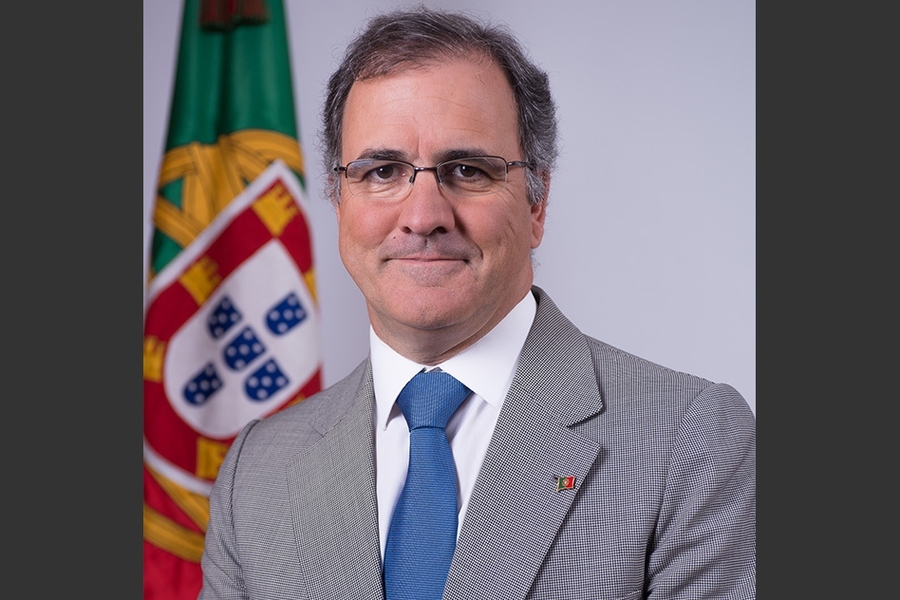Portuguese Minister for Economy António Pires de Lima traveled to Boston and Cambridge, Mass., last week, to meet with regional entrepreneurs and representatives of companies to foster ties in research and innovation. He was accompanied by Leonardo Mathias, the deputy secretary of state for economy; Pedro Gonçalves, the deputy secretary of state for innovation, investment and competitiveness; and Luis Castro Henriques, administrator of the Agency for Investment and Foreign Trade (AICEP).
While in Cambridge, the minister and delegates exchanged ideas with Portuguese companies and U.S. investors at the Cambridge Innovation Center. In addition, Pires de Lima visited the MIT Portugal Program headquarters at the invitation of program director Dava Newman. They were joined by MIT Portugal focus-area leads and researchers from MIT and Portugal.
The economy minister emphasized the "great level of satisfaction" with the partnerships between Portugal and U.S. institutions, with MIT Portugal being of central importance. Pires de Lima, who took over as minister of economy a year and half ago, explained how Portugal’s partnerships with MIT and other leading institutions in the United States have contributed to the formation and training of a new generation of leaders who can help Portugal become more competitive in a knowledge-driven economy.
Pires de Lima commended the program for fostering knowledge that is directly applicable to industry and business, pointing to the many startups launched in technological areas. He also emphasized that these international programs represent a significant investment of the Portuguese government in graduate education.
Dava Newman, director of the MIT Portugal Program, professor of aeronautics and astronautics and of engineering systems, and director of the MIT Technology and Policy Program, reflected on the excellence of the program and how pleased MIT faculty members are with the long-term collaboration with their Portuguese counterparts. The program has sustained faculty interest from all across campus and has created a large cohort of successful alumni, important research breakthroughs, and numerous startups, despite the economic challenges in Portugal. Her comments were echoed by faculty members speaking to the success of individual programs and to the broad impacts in Portuguese society. The meeting counted with contributions from both sides of the Atlantic, including faculty and researchers from MIT (Bruce Tidor, Chris Zegras, Doug Hart, Luis Barros, Mac Hird, Sebastian Pfotenhauer, Stan Finkelstein, and Stephen Connors) and faculty members and students from the Portuguese universities that are currently at MIT under the program (Ana Machado, Gonçalo Amorim, Miguel Amaral, Patricia Monteiro, and Susana Correia).
The MIT Portugal Program is a strategic international partnership of Portuguese universities and research centers, the Massachusetts Institute of Technology, and multiple partners from industry and government. It is funded by the Fundação para a Ciência e Tecnologia (Portuguese Science and Technology Foundation). Launched by the Portuguese government in 2006 and renewed in 2013, its goal is to strengthen the country’s knowledge base and international competitiveness through a strategic investment in people, knowledge, and ideas in innovative technology sectors. The MIT Portugal Program has enrolled 636 PhD students, 111 of whom have graduated. It also has graduated 190 executive-master’s-program students from a total of 222 enrolled. The program has produced hundreds of scientific papers and contributions to international conferences, and has successfully funded more than 20 research projects selected in competitive calls for proposals. More than a dozen startup companies have been created by students and faculty, and based on faculty research. In addition, the MIT Portugal Program has provided a positive influence on and significant cultural change within Portugal.






